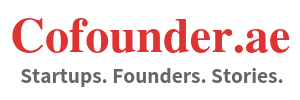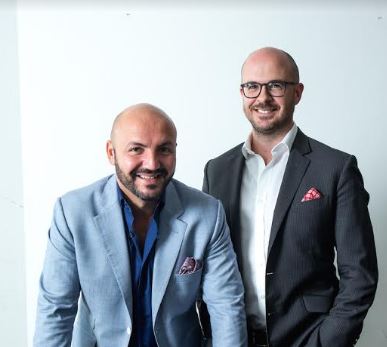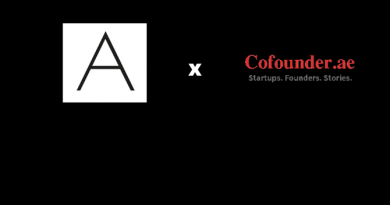A global equity crowdfunding is changing the way people invest and businesses raise capital
Sam Quawasmi Co- CEO and Co-founder of Eureeca shares the journey of Eureeca and his best advice on how to raise capital and fund your social enterprise with crowdfunding.
Eureeca’s platform connects Angel and Institutional investors to small & medium enterprises (SMEs) online to pool their funds and resources – creating a game-changing alternative to traditional funding.
Eureeca is the first and most regulated global online crowd investing (or Equity Crowdfunding) platform where businesses can source funding from the crowd in exchange for equity in their business.
Everything starts with an idea. What gave a nudge for ‘Eureeca’? Why a crowdfunding platform?
As former investment bankers and entrepreneurs, we were keenly aware of the challenges that businesses face in seeking funding. The writing on the wall was clear – 50% of the jobs are created by SMEs but one of the main reasons an SME fails in the first five years is lack of access to capital.
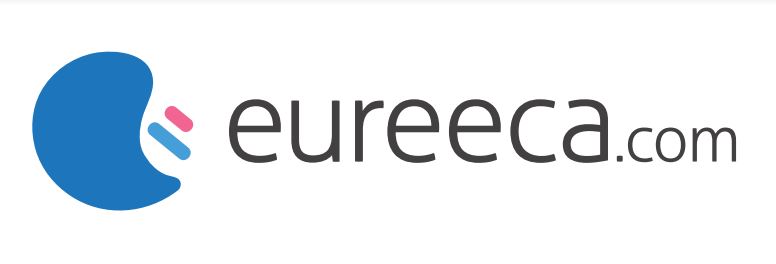
Coupled with the changing dynamic in the global economy (debt crisis 2008), it was evident how difficult it was for any business, let alone an SME, to get funding. There is a clear “no man’s land” gap between venture capitalists that are looking to make large investments to generate big returns fast and risk-averse banks that offer limited loans to SMEs.
The idea behind Eureeca was to offer a transparent, cooperative and cost-effective way for growth-oriented businesses to get access to much-needed expansion capital through a robust digital infrastructure.
Equity Crowdfunding has the potential to foster greater financial inclusion and to facilitate lending in support for SMEs and growth-oriented businesses and the impact, especially for emerging markets like MENA. Which relies on job creation to nurture the upcoming workforce – is more jobs, given that 90% of hires are made after a company receives financing.
Can you tell how long ‘Eureeca’ has been operating and How it works?
Eureeca launched in Dubai in 2013, and it has since grown into a cross-continent platform globally, having received regulatory approval from the UK’s Financial Conduct Authority (with a Branch Office and a Representative Office in Dubai) and the Malaysian Securities Commission.
From its offices in Dubai, London, Kuala Lumpur, and Holland, Eureeca offers high-yield potential investment opportunities from the Middle East, Europe, and Southeast Asia to its investor network who range from casual and angel investors to institutional firms.
Businesses raising funds can leverage this network for capital, strategic connections, and expansion into new markets. Equity crowdfunding, the model used by us here at Eureeca, allows investors of nearly all profiles to buy equity (shares) in growth-oriented private businesses, in other words, these can be from any sector and we currently have clients from retail to technology and everything in between.
Our international investors effectively become co-owners of the business and are naturally incentivized to help it succeed. In simple terms, it allows startups and growing companies to get funding from people who often bring more to the table than just money. It makes capital raising and investing more accessible, efficient and transparent than other traditional sources of capital and, rather than replacing angels and VCs, the model is serving as a vehicle for them to invest in SMEs, along with the rest of the crowd.
It is very affordable with limited financial risk as equity crowdfunding platforms usually only charge a fee to businesses if, and when, the money is raised.
For instance, if the campaign is unsuccessful there is nothing to pay, companies choose how much capital they wish to raise and how much equity they are prepared to part with.
Eureeca is also the first equity crowdfunding to introduce insurance from American International Group (AIG), which was developed specifically to protect investors on equity crowdfunding platforms against issuer fraud.
Fintech start-ups have created quite a buzz in the region. How is ‘Eureeca’ different from competitors?
All of Eureeca’s competitors work hard and have closed deals. All make a local impact in their markets. There are a number of equity crowdfunding platforms out there so it is important to check that you are choosing the right one for your business.
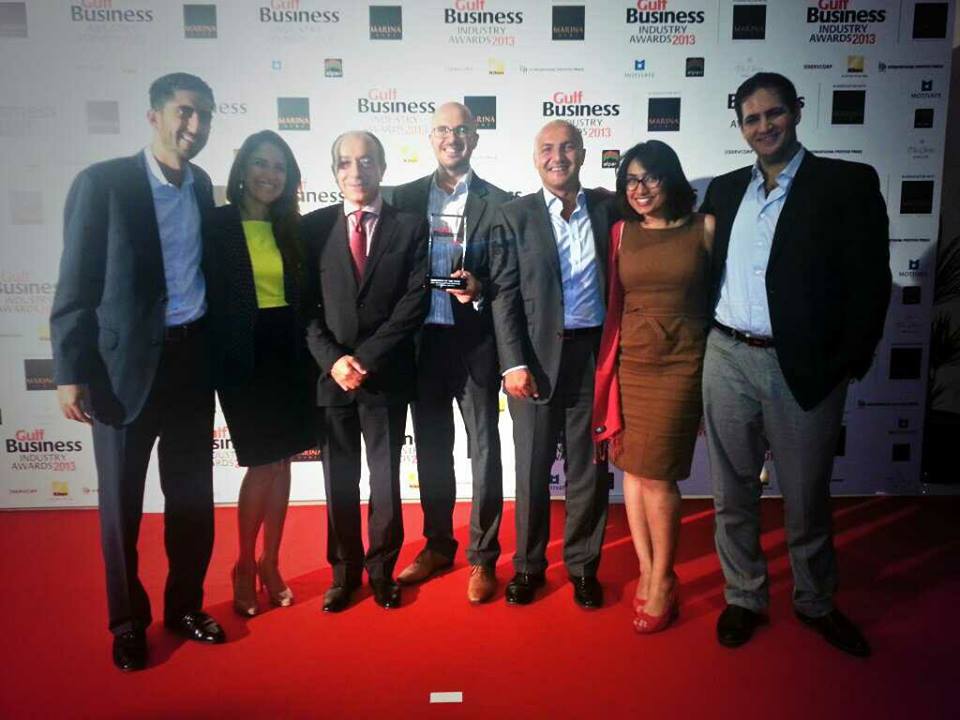
Key differences are in the type of business ideas they accept, the commercial requirements, the people they reach and how they can help support you.
For example, at Eureeca, we specialize in giving businesses the chance to access funding from an international pool of investors, as we are the most regulated equity crowdfunding platform in the world, with four licenses to operate in three different continents (Europe, Middle East, and South East Asia).
- Eureeca is the first global equity crowdfunding platform
- By Q2 2019, this is likely to grow from four to eight licenses
- The only regulated platform in the MENA region is Eureeca.
- We have an operating model that works in multiple countries
- The first firm to have listed business from different countries
- We are global with offices and representation in six countries
- The first firm to participate in the writing of the first crowdfunding law of the jurisdiction
- Eureeca has obtained the coveted license from the FCA in the UK
Can you tell us a little bit about the crowd investors? Where do they come from?
Since its launch, Eureeca has grown to an active investor base of 22,167 from 49 countries with an average investment size of US$5,800. Eureeca has been designed to host investors of pretty much all profiles, from casual retail and active angel investors to institutional investment firms such venture capital funds – all of which are looking to buy equity in growth-oriented businesses of the future.
As for start-ups, in your opinion, what makes a start-up become the next big thing?
For a startup to create value, it’s not enough to see a gap in the market and steamroll into developing a solution. You need to understand whether that gap is sufficient enough not to be able to be filled by existing solutions.
And not only does your proposition need longevity (a fad is not sustainable as a value proposition), but you need to see your product through your customer’s eyes, just don’t make too many assumptions on what they want.
At Eureeca, our role is to guide the entrepreneur in narrating their investment case and to assist them with ensuring that they communicate the appropriate message to each stakeholder.
Prospective investors each have different needs and will be searching for a key message that resonates directly with them and piques their interested in a particular business.
What do you look for in a start-up as you evaluate it for a potential investment?
The truth about valuations for your business is that all valuations are subjective, especially when it comes to companies in the early stages of their life cycle. In short, your company is only worth what an investor is willing to pay for it.
Without being able to draw on history and with the lack of ‘proof of concept’, making judgments on revenues becomes difficult when the company’s entire value lies in future growth.
The process often becomes a negotiation between the investors and the entrepreneurs. With both having to find common ground on how the business should be valued.
Entrepreneurs should approach the negotiating table with a well-formulated and supported valuation. It is the entrepreneur’s job to tell a good story – to show the investor what a business can become rather than what it is now – and the investor’s job to ensure they make a good early-stage investment.
When determining the value of a start-up or SME, we generally draw on their current financial statement, the company’s financial history and, finally, the industry and comparable firm data. What are the current market conditions? How does this business compare to similar businesses in the market? How much capital does the business need? And, how much equity should the founders and employees retain? Startup valuations may also be adjusted up or down based on the strength of the management team and the location of the business.
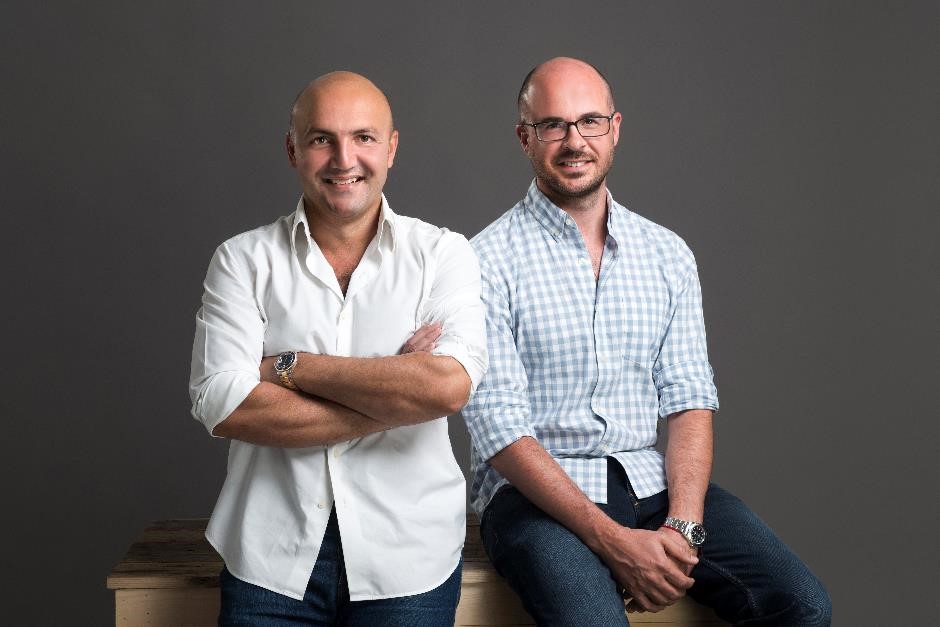
Eureeca – Co-founders-Sam Quawasmi and Chris Thomas
It sounds relatively simple and, technically, this part is. But where it gets complicated is determining when and at what valuation will the company likely raise its subsequent rounds.
Seeking advice on the right price point is crucial in order to get funded. And eventually, to ensure that your business is able to attract funding through future rounds and after understanding how much the company will need to raise in the future, and the likely pricing of those rounds, you can figure out how much equity the company can afford to give up in the initial round.
While there are dozens of valuation methodologies out there, rarely, if ever, are they the official “valuation” of the company. But to narrow them down into the most commonly used methods for valuing start-ups and SME’s:
- Market Multiple Method values the company against recent acquisitions of similar companies in the market, by comparing the multiple users on their earnings.
- Discounted Cash Flow Method values a company today as equal to what it can potentially earn tomorrow (assuming that the dollar today is worth more than the dollar tomorrow).
- Cost to Duplicate Method assumes a company is worth as much as it would cost to build another company just like it from scratch.
- Berkus Method values a company based on the venture’s stage of commercial development, using a scoring method to value five integral categories of the company.
A valuation is a form of art, rather than an exact science. There is no one-formula-fits-all which means that inevitably, some people get it wrong. Valuation is very volatile and unpredictable and raising money puts a very un-ambiguous stamp of “worth” on what you’ve worked so hard to create. Remember to be reasonable as value comes in with investment, so doesn’t matter what numbers say, it’s about market validation. Valuation is also contingent on the terms – more generous terms can yield a higher valuation.
What are the risks involved in investing through ‘Eureeca’? Investors would want to know the risks involved in investing in a company through your platform?
Investing in private businesses can be a long wait sometimes before seeing returns on investments. But then again, although they are risky assets, the returns on investments for early-stage companies and SMEs can vary between twenty and fifty times an investor’s initial investment. But that requires diversification. So the right strategy for any investor, and what Eureeca encourages, is rather than invest $100,000 is one company, for example, invest $10,000 in ten different companies across various sectors and geographies to spread and minimize the risks.
Regulation for equity crowdfunding is unchartered territory in the emerging markets. One of the main challenges is the process of fine-tuning the details of the regulatory environment takes time and effort, and collaboration from many entities working towards safeguarding the interests of both the businesses that are seeking funding as well as the investors.
The industry needs to develop in a safe and sound manner and countries need to adapt their regulatory, supervisory and consumer protection framework to address the unique risks Equity Crowdfunding. Eureeca is pioneering these changes by continuing to work closely with regulatory authorities and governments in the across the Middle East and Southeast Asia to ensure that the industry as a whole moves forward in the right direction, within the most appropriate legal framework, to ensure that all parties are best protected.
In an ongoing effort to educate regulators in emerging markets, Eureeca is working in cooperation with relevant authorities in other emerging markets to set up appropriate regulatory frameworks within each country that will enable equity crowdfunding platforms to set up business in a safe and secure manner.
The nature of the equity crowdfunding business model is that an investor can only commit an investment amount to a proposal if they have cleared funds in the Eureeca account, (i.e held by the firm in our segregated client accounts). As such there cannot be any “late payments” as money is already in the account.
Eureeca has a cancellation and cooling off policy that is significantly more supportive of the investor than required by global regulators. Rather than enable the investor to have a cooling off period for 48 hours after they have made an investment commitment, we provide them with a cooling off period all the way up to 7 days post the proposal closing (i.e. hitting its funding target).
We believe this is a fairer policy, as it enables the investor to take into account any further information obtained while the funding campaign is still running.
Eureeca have the right to modify or cancel any proposal where they believe there has been an adverse material change in the proposal. In these circumstances, funds will be returned to the investor.
To ensure investor protection, Eureeca treats the global regulatory and business best practice principles of “treating customers fairly” and ensuring all information are providing in a “clear fair and not misleading way”
Therefore, we ensure all information on the platform is available to all investors, large and small.
What are the milestones of the company for the next 5 years?
Eureeca is currently present in four markets (UK, UAE, The Netherlands & Malaysia). Off the back of Eureeca’s successful self-crowdfunding campaign in August 2016, which raised $400,000 in just 12 days of being online, Eureeca’s strategy was to have a ‘light touch’ presence in each of these markets with 1-2 businesses from each of these geographies opening for funding on the platform per quarter.
Eureeca conducted a further Eureeca self-funding campaign in September 2017 raising a further $400,000 in just 6 hours of being online. The capital raised will enable Eureeca to become fully entrenched in the current markets, as well as to expand into additional new markets in EMEA.
Eureeca is estimating by Q2 2019 it would have achieved an additional 3 – 4 licenses in other markets, in addition to the current ones. This would then lead to having obtained 7 – 8 licenses in total; far ahead of its rivals in the UK and other markets.
Eureeca plans to move away from the ‘light touch’ strategy in these markets – which is currently at listing 1-2 businesses on the platform from these markets per quarter. The next ‘well-entrenched’ strategy will ensure Eureeca features between 5-10 businesses per quarter from these markets allowing it’s investor-base from 36 different countries to invest in a wide range of growing companies in multiple markets that vary in the sector. Truly democratizing the process of investment.
Within the next 12 months, Eureeca aims to have access to a combined population of over 400 million people in South East Asia alone more than quadrupling its current target market and enabling Eureeca to launch expanded marketing and PR campaigns to build awareness and facilitate significant growth in these markets.
It will also facilitate the development of expanded revenue streams by layering on additional products, such as the Secondary Market, which would allow investors to sell shares in companies that they have previously invested in to facilitate returns on investments.
